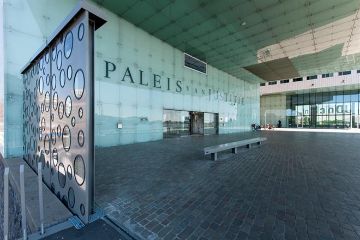Commercial disputes in the Netherlands are a reality for many businesses. Whether it’s an issue of breach of contract, misappropriation of funds or other issues, understanding the legal landscape is essential to navigate such matters successfully. As a Dutch commercial attorney with decades of experience in handling these cases, I know that this topic can be complex and confusing. In this article, we’ll explore the Dutch legal system, as a law firm for commercial disputes in the Netherlands, when it comes to resolving commercial conflicts and how you can protect your interests as a business owner.

The first step towards resolving any dispute is knowing what options are available under Dutch law. Fortunately for companies based out of the Netherlands, there are several solutions depending on their unique circumstances. From initiating arbitration proceedings to filing complaints at court – there are several paths available which may lead to a satisfactory resolution for all parties involved. Our law firm for commercial disputes in the Netherlands is specialised in such litigation.
Finally, while knowledge is power when facing commercial disputes in the Netherlands, seeking expert counsel from experienced professionals should never be overlooked. By having access to specialized advice throughout each stage of the process, clients can ensure they have taken every possible precautionary measure before taking action against another party or defending themselves from lawsuits initiated by those claiming damages.
Overview Of Dutch Commercial Disputes
Commercial disputes in the Netherlands can be likened to a game of chess. On one side, you have businesses that are trying to protect their legal rights and interests; on the other, they’re up against formidable opponents with extensive knowledge of Dutch commercial litigation. As such, it is important for anyone engaging in business activities in the Netherlands to familiarize themselves with Dutch commercial disputes and learn how to effectively manage them. We as a law firm for commercial disputes in the Netherlands are experienced in helping people on their path.
The first step when facing any type of commercial dispute in the Netherlands is understanding its roots. These types of disagreements typically stem from contractual obligations or other legal agreements between parties involved in a business relationship. It could also arise out of alleged breach of agreement or misrepresentation by either party in a transaction. Whatever the case may be, all parties must abide by Dutch law when dealing with these issues.
Knowing your way around Dutch commercial litigation requires an intimate understanding of key concepts such as arbitration clauses, jurisdiction rules, court procedures, and enforcement mechanisms. Our law offices for commercial disputes in the Netherlands would gladly advise you on this. Not only can this help resolve conflicts quickly but it can also prevent future problems down the line if both sides agree to take reasonable steps towards resolving their differences amicably. With sufficient preparation and planning, companies should not shy away from potential challenges before entering into any kind of business deal within the Netherlands. Transitioning now into discussing different types of business quarrels in the Netherlands’ context provides further insight into navigating through these complex scenarios.
Types Of Business disputes In The Netherlands
In the Netherlands, commercial litigation typically involves disputes between businesses. This includes a broad range of legal issues and conflicts that arise in business operations. Dutch business litigation is governed by the Dutch Civil Code (Burgerlijk Wetboek), as well as other statutes, regulations, and case law. Common types of commercial lawsuits include contract disputes, product liability claims, breach of fiduciary duty cases, shareholder disputes, employment grievances and intellectual property infringement claims.
The most common form of Dutch commercial litigation is contract disputes. These involve disagreements over contractual obligations or rights arising from agreements related to goods and services provided or received by parties involved in a dispute. Disputes can also occur when one party fails to comply with their contractual responsibilities or fails to meet deadlines set out in an agreement. In such situations it may be necessary for a court to intervene to resolve the disagreement.
Another type of Dutch business lawsuit relates to tortious conduct – actions which cause financial loss or damage due to negligence or intentional wrongdoing on the part of another person or company. Examples include personal injury claims resulting from defective products manufactured by a company; professional malpractice suits against attorneys or doctors; and environmental pollution claims brought against companies responsible for polluting natural resources.
In these kinds of cases plaintiffs seek compensation for damages caused by defendants’ wrongful acts or omissions. Resolution often requires expert analysis of evidence presented at trial in order to properly assess fault and award damages accordingly. Transition sentence: Understanding the causes behind commercial conflict in the Netherlands can help prevent similar future incidents from occurring, done best by a law firm for commercial disputes in the Netherlands.
Causes Of Commercial Conflict In The Netherlands
The Dutch landscape has long been plagued with the turmoil of commercial conflict. Like a dark cloud on a horizon, it hangs over business owners, entrepreneurs and shareholders alike – no one is immune to its effects. But what causes such disputes? Understanding the underlying factors that lead to tense negotiations can help inform decisions about strategies for resolution and management of these conflicts.
One major cause of commercial disputes in the Netherlands is related to economic uncertainty and market volatility. Companies often find themselves competing against each other for resources or customers, leading to disagreements as they attempt to outmaneuver their competitors. Financial insecurity can also be an issue; when companies lack access to capital or sources of income, tensions may arise between stakeholders who disagree about how best to allocate limited funds.
Another common reason for dutch commercial conflict is contractual negligence or breach of agreement. When parties fail to honor obligations outlined in contracts or agreements, it’s not uncommon for disputes to surface among affected individuals or organizations. Likewise, inadequate documentation of terms and conditions can create confusion and frustration around expectations, resulting in tension among those involved in the transaction.
In addition, cultural differences are another factor that may contribute to disagreements within the context of business relationships in the Netherlands. Businesses need clear communication between all parties involved in order for transactions and deals to go smoothly; without sufficient understanding of cultural values and norms, misunderstandings are sure to occur at some point along the way.
By recognizing what lies beneath many conflicts between businesses in The Netherlands—economic instability, contract issues, miscommunication – we can begin identifying and diagnosing Dutch business disputes more effectively as a law firm for commercial disputes in the Netherlands.
Identifying And Diagnosing A Dutch Business Dispute
When attempting to identify and diagnose a Dutch business dispute as a law firm for commercial disputes in the Netherlands, it is important for the parties involved to take into consideration any potential sources of conflict. This includes evaluating any previous agreements or contracts that may have been breached as well as assessing each party’s expectations surrounding the transaction. Furthermore, all relevant information regarding the circumstances leading up to the dispute should be reviewed in order to understand how it arose.
Once an understanding of the situation has been established, there are a variety of approaches which can be employed in order to resolve the dispute efficiently and effectively. The most common approach involves utilizing mediation services, such as those provided by arbitration firms or other third-party organizations specializing in dutch business dispute resolution. Through this method, parties will gain access to impartial advice from trained professionals who can help them come to an agreement outside of court proceedings. Additionally, certain preventative measures can also be taken prior to initiating negotiations with another party in order to minimize the likelihood of future disputes arising between both sides. These include drafting clear contracts detailing expectations and obligations between both parties as well as ensuring all stakeholders are adequately informed about their respective roles within the organization.
Ultimately, when dealing with commercial conflicts as a law firm for commercial disputes in the Netherlands, it is essential for all parties involved to recognize early warning signs and employ strategies aimed at resolving disputes before they reach litigation stage. By doing so, costly legal fees can often be avoided while allowing businesses to maintain positive relationships with one another moving forward. With this knowledge in mind, it is now possible for us to move onto examining litigation as a solution for Dutch commercial disputes.
Litigation As A Solution To Dutch Commercial Disputes
In the Netherlands, litigation is a popular solution for resolving commercial disputes. According to recent statistics, about 20% of all Dutch business litigation cases end in arbitration or mediation. This shows that many businesses are willing to attempt resolution through court proceedings before turning to alternative dispute resolution methods.
Litigation as a form of dispute resolution offers several benefits:
- It provides clarity and finality as it follows a set procedure which must be adhered to by both parties.
- The court has the power to enforce any decisions taken; this ensures compliance from both sides even if they are unwilling to cooperate.
- Litigation also allows access to remedies such as damages or injunctions should one of the parties breach their obligations under a contract.
- A court decision is binding on parties regardless of what country they reside in, making it easier for international companies with operations in different countries to resolve their disputes efficiently.
- Additionally, legal advice is readily available throughout the process and can help guide both parties towards an amicable outcome.
The Dutch courts have established procedures for dealing with commercial disputes quickly and effectively, providing litigants with an efficient means of obtaining a satisfactory result without having to resort to costly alternatives such as arbitration or mediation. With experienced lawyers who understand how best to represent their clients’ interests, businesses can rest assured that justice will prevail when pursuing litigation in the Netherlands. The next section discusses other solutions available for resolving Dutch business disputes besides litigation.
Alternative Solutions To Dutch Business Disputes
When it comes to resolving commercial disputes, Dutch businesses have several options available. This section will discuss the various dispute resolution strategies and their advantages and disadvantages.
| Advantages | Disadvantages |
|---|---|
| Time-efficient | Costly |
| Less confrontational | Lengthy process |
| Confidentiality maintained | Uncertain outcome |
| Amicable settlement reached | No binding result without court judgement or arbitration award |
| Can be used in combination with other methods of dispute resolution (e.g., litigation) | Not suitable for certain types of disputes (e.g., intellectual property rights) |
The most common form of alternative dispute resolution is commercial mediation, which involves a neutral third party mediator who helps the parties reach an amicable solution to their conflict. To a law firm for commercial disputes in the Netherlands, mediation offers many benefits such as confidentiality, time efficiency, flexibility, cost-effectiveness and less confrontation than traditional litigation. In addition, it allows both sides to present their arguments in a constructive manner that can help them find common ground and resolve the dispute quickly and amicably. It also enables the parties to maintain control over the decision-making process.
Arbitration is another form of alternative dispute resolution commonly used by Dutch businesses when dealing with complex legal matters or international cases where they may not want to go through traditional court systems. Unlike mediation, however, arbitration results are legally binding and enforceable under Dutch law. This means that if one party does not comply with the arbitrator’s decision then sanctions can be imposed on them by a court of law or other relevant authority. Arbitration also provides more certainty than mediation since there is no risk that either side could refuse to abide by any agreement made during negotiations in order to gain leverage later on down the line. Additionally, arbitration proceedings are often quicker than going through regular courts because specialized lawyers deal solely with these kinds of cases rather than having multiple matters competing for attention within a single court system.
Alternative forms of dispute resolution offer numerous benefits but come at a price; they tend to be expensive due to associated costs like legal fees and expert witnesses as well as potential delays caused by lengthy negotiation processes between parties who may disagree about aspects of their case.. Despite this, these solutions remain popular among Dutch businesses looking for effective ways to manage conflicts outside of costly courtroom battles while still obtaining reliable outcomes from experienced professionals familiar with local laws and regulations concerning commercial disputes in the Netherlands.
Strategies For Resolving Commercial Conflicts with a law firm for commercial disputes in the Netherlands
Business disputes in the Netherlands can be resolved through a variety of strategies. Commercial litigation is one option, but there are alternative solutions that may be more suitable for certain types of conflicts. It is important to understand these options and develop an effective approach for resolving any dispute.
The first step in preventing Dutch business disputes is having clear contracts with all relevant parties. This should include specific terms and conditions covering the expected outcomes as well as potential remedies if a disagreement arises. Having such agreements in place prior to entering into any agreement or transaction will help reduce the chances of a conflict from arising. Additionally, it will provide both parties with some level of security knowing what their respective rights and obligations are under the contract.
When faced with a commercial conflict involving Dutch entities, early mediation may also prove beneficial in resolving the issue without resorting to costly legal action. Mediation provides an opportunity for both sides to openly discuss their concerns and interests before pursuing further measures such as litigation or arbitration. Parties involved can work together collaboratively to come up with mutually-agreeable solutions that address all issues at hand and alleviate any underlying tensions between them. Through this process, they can avoid lengthy court proceedings while still achieving their desired outcome quickly and cost effectively.
By considering these various strategies when dealing with Dutch business disputes, companies can minimize risk while ensuring that any future disagreements are handled constructively and efficiently. With careful planning, businesses can create strong relationships based on mutual respect and understanding which lays the foundation for successful partnerships going forward. Moving forward, it is important to explore all available avenues including mediation when looking for viable solutions to commercial conflicts in the Netherlands
Mediation Approach To Dutch Commercial Conflicts as a law firm for commercial disputes in the Netherlands
A rising tide of commercial disputes in the Netherlands is a looming threat to business owners. It’s an issue that cannot be ignored, for it carries damaging consequences if left unchecked. As such, Dutch businesses must take proactive steps to ensure effective dispute prevention and resolution. One promising option is mediation – a collaborative approach designed to facilitate mutually beneficial outcomes without resorting to litigation.
The benefits of mediation are well-documented and can provide invaluable assistance when navigating complex legal matters in the Netherlands. By eliminating the need for costly court proceedings, it allows parties to maintain control over their own destiny while saving time and money. Additionally, by providing an environment of open communication between all relevant stakeholders, mediators help participants come to a swift agreement on important issues. This minimizes potential conflict among parties while promoting reconciliation and understanding.
For these reasons, many companies have adopted mediation as a preferred method for settling their Dutch business disputes quickly and cost-effectively. Rather than relying solely on traditional methods of dispute resolution or arbitration, they recognize the numerous advantages that this alternative strategy offers and leverage its strengths whenever possible. With proper implementation, mediation can be an incredibly powerful tool for preventing future conflicts from arising within a company or industry altogether. Seamlessly transitioning into discussing the ‘benefits of mediation for dutch business disputes’, there’s no doubt that this form of alternate dispute resolution has become increasingly popular among those looking for fast solutions with minimal disruption.
Benefits Of Mediation with a law firm for commercial disputes in the Netherlands
When it comes to commercial disputes in the Netherlands, mediation can be a powerful tool for resolving conflicts. This form of alternative dispute resolution offers many benefits over traditional litigation processes and is frequently used by businesses seeking an efficient way to settle disagreements. Here are some advantages of using mediation when dealing with Dutch business conflict:
- Cost Savings: Mediation typically costs significantly less than formal court proceedings, allowing both parties to save money while still achieving their desired outcome.
- Flexibility: Unlike other forms of dispute resolution, mediators have more flexibility in crafting solutions that meet the needs of all involved.
- Speed: Mediation also tends to be much faster than going through the courts; in most cases, agreements can be reached within days or weeks instead of months or years.
- Privacy: The process takes place in private between two parties as opposed to becoming subject to public scrutiny like a trial would.
- Control Over Outcome: Most importantly, mediation allows participants to shape the outcome themselves rather than leaving it up to a judge or jury whose decisions might not reflect their interests accurately.
These factors make it clear why so many businesses opt for mediation when faced with commercial disputes in the Netherlands. Rather than getting bogged down in costly and lengthy legal battles, this method provides an opportunity for both sides to reach agreement quickly and efficiently without sacrificing either party’s rights or goals. With its many advantages, there’s no question why mediation is such an attractive choice for Dutch companies looking for an effective way to resolve conflicts. Moving forward, we must explore ways of preventing future Dutch commercial disputes from arising altogether.
Preventing Future Dutch Commercial Disputes with a law firm for commercial disputes in the Netherlands?
The antediluvian wisdom of ‘an ounce of prevention is worth a pound of cure’ aptly summarizes the need for proactively preventing future Dutch commercial disputes. To that end, businesses should take heed to the following strategies:
| Strategy | Description |
|---|---|
| Review Contracts Carefully | Businesses in the Netherlands should review contracts carefully and make sure that all parties understand their rights and obligations under the agreement. This can help prevent misunderstandings and potential legal action down the road. |
| Implement Dispute Resolution Mechanisms | Including dispute resolution mechanisms such as mediation or arbitration clauses in business agreements can provide an efficient way to resolve conflicts without having to resort to costly lawsuits. |
| Cultivate Good Business Relationships | Establishing good relationships with vendors, customers, partners, and other stakeholders can go a long way in avoiding unnecessary conflict and litigation. Taking steps to build trust between all involved parties will also create a more harmonious working environment. |
By taking these preventive measures, companies operating in the Netherlands can reduce their risk of becoming embroiled in business litigation while simultaneously promoting goodwill within their respective industries. As we turn our attention towards understanding the regulatory framework surrounding Dutch business conflict, it’s important to remember that not all issues require drastic remedies; sometimes simply making sure everyone is on the same page is enough to avoid any contentiousness from arising.
Regulatory Framework Surrounding Dutch Business Conflict
The Netherlands has a comprehensive regulatory framework in place to address commercial disputes. Businesses operating within the country must abide by Dutch law and regulations, which provide guidance on how business conflicts should be resolved. The Dutch legal system also provides businesses with access to civil courts for dispute resolution when necessary.
Dutch law recognizes several different types of business disputes that may arise between parties. These include contract-related disputes, tort claims, intellectual property infringement claims, unfair competition allegations, and more. Additionally, there are rules governing how companies can proceed with internal resolutions or mediation efforts before filing a claim in court.
These regulations play an important role in providing certainty and stability in Dutch commerce and ensure that all involved parties adhere to the same standards when resolving complex issues. They guarantee that businesses can pursue their respective interests without fear of litigation from other participants in the market. By adhering to these regulations, businesses have greater confidence that any disagreements they encounter will be addressed fairly and efficiently under the law.
Navigating The Dutch Legal System as a law firm for commercial disputes in the Netherlands
Navigating the legal system in the Netherlands can be a tricky business. For those unfamiliar with Dutch commercial law, it is important to understand how legal proceedings are conducted and what remedies may be available when disputes arise. Fortunately, the country has long-standing traditions of judicial independence and efficient court systems which help to facilitate both domestic and international dispute resolution.
The first step for any party involved in a potential commercial dispute should be to identify their rights under Dutch law. This will allow them to assess the merits of their case before commencing legal action or engaging in alternative forms of dispute resolution. It is also worth noting that there are certain procedural steps which must be taken prior to initiating court proceedings – such as filing pre-action notices and/or seeking mediation services – depending on the nature of the dispute.
Additionally, parties should consider whether they could benefit from any other government resources available, such as specialist ombudsmen services or access to free legal advice provided by local bar associations. Understanding these options can provide valuable insights into the various ways an individual or company can seek redress if their interests have been adversely affected by another’s actions. With this knowledge at hand, businesses can make informed decisions regarding their approach to resolving any issues that may arise between them. Moving onward then, let us look at some of the challenges associated with settling Dutch commercial disagreements effectively.
Challenges Of Resolving Dutch Business disputes with a law firm for commercial disputes in the Netherlands
Having a thorough understanding of the Dutch legal system is essential for every law firm for commercial disputes in the Netherlands. The Netherlands has several mechanisms in place to resolve business disagreements, but certain challenges may arise throughout the process. In this section, we will examine some of these difficulties and discuss how businesses may benefit from professional assistance regarding Dutch commercial disagreements.
One issue that can occur during resolution proceedings is an inability to reach a mutual agreement between parties involved. This situation often leads to costly litigation with unpredictable outcomes; thus, it’s best to attempt non-judicial dispute resolution beforehand. Additionally, if one party does not have the financial means or resources to fulfill their obligations under a settlement agreement, then they must find another way to satisfy them before the process begins again.
Another challenge arises when attempting alternative dispute resolution such as arbitration or mediation; both processes require specialized knowledge and expertise on behalf of all participants in order for successful negotiations and settlements to take place. As such, having access to experienced professionals in a law firm for commercial disputes in the Netherlands, who understand the intricacies of Dutch law can help streamline these procedures significantly. Furthermore, working with someone familiar with the local culture and language could also prove beneficial in ensuring effective communication between parties involved.
As demonstrated above, resolving business quarrels in the Netherlands involves several complexities which could be alleviated by engaging qualified counsel. With proper guidance, companies are better positioned to identify potential pitfalls ahead of time and maximize their chances of achieving mutually satisfying solutions prior to resorting to legal action. Moving forward, seeking professional aid should always be considered when dealing with commercial disputes in the Netherlands.
Professional Assistance Regarding Dutch Commercial Disagreements
It’s a commonly held belief that the Dutch court system is one of the most efficient and reliable in Europe when it comes to settling commercial disputes. But this doesn’t mean that businesses should take matters into their own hands without assistance of a law firm for commercial disputes in the Netherlands. Professional guidance can help ensure businesses are fully aware of all legal options available, as well as potential financial implications of involved parties in a Dutch business conflict:
- Familiarize yourself with applicable laws and regulations
- Explore alternative dispute resolution methods
- Utilize experienced counsel for strategic advice
- Acquire representation if necessary
- Develop strategies to protect your interests
Businesses may be tempted to try and settle disagreements independently, but doing so could put them at risk financially. Experienced counsel will have extensive knowledge of how the law works in various contexts and scenarios related to commercial disputes, allowing them to guide companies through complicated proceedings while protecting their rights and best interests. Moreover, they’ll also possess an understanding of international law which could prove invaluable for cross-border conflicts involving foreign companies or entities.
A law firm for commercial disputes in the Netherlands would offer practical advice tailored specifically to each case, giving clients access to up-to-date information regarding changes or updates in legislation. They are able to assess any given situation from multiple angles and provide honest feedback on what steps need to be taken next — whether that means engaging in litigation or seeking out an amicable solution outside of courtrooms altogether. With such professional support, businesses can remain confident while navigating even the trickiest of commercial disputes here in the Netherlands.
Having discussed the importance of professional guidance during Dutch commercial disagreements, we now turn our attention towards examining the financial implications these types of conflicts often carry.
Financial Implications Of Involved Parties In A Dutch Business Conflict
The financial implications of a commercial dispute in the Netherlands can be significant. Companies must take into account all costs associated with any legal proceedings, including attorney fees, court costs and potential damages awarded to the opposing party. Additionally, businesses may have to consider related expenses such as lost time spent dealing with the conflict or losses resulting from delays caused by the dispute.
When considering their own financial position within a Dutch business conflict, parties should also bear in mind that if they are unsuccessful at trial then they may be liable for costs incurred by the successful party. This could include reasonable legal costs and other expenses reasonably incurred during litigation. Furthermore, it is important to note that punitive damages do not exist under Dutch law so no additional compensation will be awarded beyond actual damage suffered.
It is therefore essential that companies engaged in commercial disputes assess their positions accurately and ensure that all relevant considerations are taken into account when weighing up potential outcomes and deciding on whether to go ahead with litigation or negotiate an out-of-court settlement. By taking these steps parties can minimise both short-term disruption to their operations and long-term financial risks associated with ongoing disputes.
Frequently Asked Questions
What Is The Average Duration Of A Dutch Commercial Dispute?
When it comes to the duration of a Dutch commercial dispute, there’s no one-size-fits-all answer. Depending on several factors – such as the complexity of the case and the willingness of all parties involved to reach an agreement outside of court – timelines can vary from months to years. To better understand this process, here are some key points:
- The average time before a decision is rendered by Dutch courts is roughly 8.5 months for civil cases and 9.3 months for criminal ones;
- Disputes that require multiple hearings may take longer than those resolved through mediation or other out-of-court settlement agreements;
- A lawyer’s expertise in navigating complex legal proceedings must be taken into account when setting expectations regarding a timeline for resolution;
- Factors like limited resources available to public prosecutors also play a role in how long it takes to resolve disputes in the Netherlands.
As an experienced commercial attorney, I’m well aware that clients often prefer quick resolutions so they can move forward with their business operations without any further delays. However, while speedy solutions are always welcome, attorneys must also ensure that these outcomes are just and equitable for everyone involved – something which cannot be guaranteed unless we conduct thorough due diligence and remain mindful of our ethical obligations at all times.
Are There Any Limits To The Amount Of Damages That Can Be Awarded In A Dutch Commercial Dispute?
When it comes to commercial disputes, damages are a primary consideration. It is important to understand the limits of any remedies that may be awarded in such cases. In Dutch law, there is an established set of rules governing how much can be awarded as damages for a dispute involving two or more business entities.
Under Article 6:96 of the Civil Code, punitive damages are not permitted and therefore cannot be awarded in any case involving a commercial dispute within the Netherlands. This means that only actual losses incurred by one party due to another’s conduct are eligible for compensation. Additionally, certain types of harm which do not have monetary value attached to them, such as emotional distress or damage to reputation, also cannot be recovered under this article.
The other limit relates to contractual agreements between parties involved in a dispute; if either party has agreed upon specific limitations on potential damages, those will supersede the general provisions outlined in Article 6:96. For example, if the contract states that both parties agree that no damages shall exceed €10,000 regardless of circumstances then this would take precedence over the Civil Code provision regarding damages caps. It is thus critical before entering into any agreement with another entity to ensure all terms are clearly understood and documented for future reference.
In matters related to commercial disputes within The Netherlands it is essential for both sides to recognize their respective rights and obligations when it comes time for calculating potential awards – understanding these parameters ahead of time helps avoid costly delays should legal action eventually become necessary.
Are There Any Tax Implications For The Parties Involved In A Dutch Commercial Dispute?
When it comes to any commercial dispute, tax implications are always a concern for the parties involved. Dutch law is no exception; there are certain taxes that may arise during or after the resolution of a commercial dispute. It’s important for all parties to be aware of and understand these potential costs before they enter into an agreement.
In terms of specific taxation issues, both individuals and businesses must consider their obligations in regards to income and dividend taxes when resolving disputes. Additionally, if any damages are awarded as part of the settlement, then value-added tax (VAT) can also come into play. The extent to which this will affect each party varies depending on their involvement in the proceedings and individual circumstances.
It’s essential that those engaging in commercial disputes take steps to protect themselves from potentially costly taxes. This means consulting with legal counsel who has experience dealing with Dutch laws surrounding taxation matters related to business litigation. With help from an experienced attorney, you can ensure that your rights remain protected while avoiding any unnecessary financial liabilities associated with settling a dispute in the Netherlands.
Are There Any Restrictions On The Type Of Evidence That Can Be Used In Dutch Commercial Litigation?
When it comes to commercial litigation in the Netherlands, there are a few restrictions on what kind of evidence can be used. Nearly 80% of cases end in settlements without going to trial, yet the type of evidence presented remains an important factor when trying to reach an agreement. Here’s what you need to know about using evidence in Dutch commercial litigation:
- Witness Testimony – Witnesses may present their testimony through affidavits or appear before a court if necessary.
- Documents and Records – Documents such as contracts, correspondence, reports, invoices, etc., that have been properly authenticated by a notary public may also be submitted as evidence during proceedings.
- Expert Opinions – Expert opinions from professionals such as doctors or engineers may also be admissible depending on whether they meet certain criteria set out by Dutch law.
As any experienced commercial attorney will tell you, gathering relevant evidence is one of the most important steps in preparing for any legal dispute. It is essential that all potential sources of information and documentation are thoroughly investigated so that they can be effectively presented before the court if needed. In order to ensure that this process goes smoothly, parties should seek counsel with specialized expertise in Dutch civil procedure regulations who can guide them throughout their case and advise them on how best to use available evidence while complying with applicable laws and regulations.
Are There Any Differences Between Dutch Civil And Commercial Dispute Resolution Procedures to a law firm for commercial disputes in the Netherlands?
When it comes to dispute resolution in the Netherlands, there are a few key differences between civil and commercial disputes. These distinctions are important for any business or individual involved in litigation proceedings in the Netherlands. From filing requirements to evidence used at trial, an understanding of these differences is essential for successful outcomes.
First, let’s look at the filing requirements for both types of disputes. In civil cases, parties may file their claims directly with the court without a lawyer present; however, this isn’t possible in Dutch commercial litigation. Here, parties must be represented by an attorney who can submit documents on behalf of their client. This requirement ensures that all filings meet legal standards before being reviewed by the court.
Next, we’ll consider how evidence is presented during each type of dispute resolution process. Civil litigants generally have broad discretion when it comes to what they can bring as proof of wrongdoing or financial loss caused by another party’s actions. However, in Dutch commercial disputes, courts place limitations on what kind of evidence parties can use to support their case – such as expert witness testimony or documentary evidence only – which means businesses must take extra care to make sure their arguments are well-supported if they wish to prevail in court.
Finally, due diligence should also be taken into account when preparing for either type of proceeding; parties must ensure they have sufficient knowledge about applicable laws and procedures so that their case will stand up under judicial scrutiny and not be dismissed out of hand due to procedural errors or omissions on their part. By doing adequate research beforehand and consulting experienced lawyers throughout the process, businesses and individuals alike can maximize their chances of success when bringing a claim against another party in Dutch courts.
Conclusion
In conclusion, commercial disputes in the Netherlands are complex matters that require extensive knowledge of both civil and commercial law. The duration of such cases can vary depending on the complexity of the matter but typically resolve within six months to two years. Additionally, there are limits to how much damages can be awarded as well as restrictions on what type of evidence is admissible in court proceedings. Furthermore, parties involved should also consider any potential tax implications related to Dutch commercial litigation.
At its core, resolving a dispute requires an understanding of all applicable legal principles and regulations. As experienced commercial attorneys, we have successfully handled numerous disputes with favorable outcomes for our clients. We understand the nuances of Dutch business law and strive to provide our clients with effective solutions tailored specifically for their needs.
Utilizing our expertise in commercial law combined with strategic negotiation techniques allows us to efficiently reach a resolution without sacrificing results. Our team takes pride in delivering exceptional service while providing comprehensive advice throughout every step of the process – from beginning to end.







